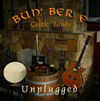
Longing for the day ...
Why is my music so small when music is so big to me?
|
Stay in touch!
Search with
Archives
November 2019
July 2019 June 2019 September 2018 August 2018 July 2018 May 2018 January 2018 December 2017 November 2017 October 2017 September 2017
Recent Entries
12 Good Bars and True - Rewrite and feedback
12 Good Bars and True - NSAI Feedback Red Hot - NSAI feedback Home Free - Be Free re-write - NSAI feedback Somebody Else's Skin - NSAI feedback Simplicity - NSAI feedback When It's Over - NSAI feedback She Don't Want Your Love - NSAI feedback Angels - NSAI feedback Baby I Need Your Soul - NSAI feedback |
November 6, 2007Giving music away or making it available??An interesting point came up on the MusicThoughts list yesterday and it peaked my interest - especially in light of an article from Andrew Dubber that I'd read earlier. Here's the original meme and my response: >> When you give your music away you are saying >Mmmmm I think that depends on the context. I've been thinking long and hard on this one and a coupla things occurred to me after I read Andrew's account of a public discussion about it. To put this in perspective, Dubber is a UK-based New Zealander who comes from a radio background, not an artist's background - so you have to filter his views accordingly. But the perspective of the girls at the forum was clear and informative and I think it represents this conundrum quite clearly. A couple of things are clear, and a couple of things are not very clear. Let's start with the clear stuff: 1) Artists need to make their music as widely available as possible away from their live shows and other places where their influence over potential fans is strongest but the scope of their contact with potential fans is severely limited. That's the only way to compete in the attention economy. At that point, making the recordings available online at no cost seems essential. 2) The "Free as in speech" vs "Free as in meal" thing is a wank. No fan or music consumer is going to pay attention long enough to read it, let alone think about it. It's a cute semantic separation for people like us, whose lives depend on understanding it, and for commentators whose lives depend on having something to say about it, but the fans/downloaders don't make their "buy" decisions on this basis. Either they have free *access* to the recordings or they don't ... and they base their decisions on the effect the recording/show has on their hips/libido/vocal chords/tear ducts. 3) Whatever music you present to the public has to be the best it can be - either live or recorded. Recording on an out-of-tune axe of any kind is not your best work unless that's your distinctive feature, upon which you build your sound. Several singers have taken this approach and a lot of punk guitarists (in particular) regard it as a badge of honour to finish a set out of tune.
What's not so clear: 1a) Letting the music run free (as in speech) is no good to its creators unless it draws fans back to its source. As the girls in Dubber's forum show, even if they like the songs, they may or may not care where it came from and want more. If they don't care where it came from, the artist gains nothing. The classic example of this is UK-based model/DJ Allan Van D'Arc, whose "Ode to the bottom" about Kylie Minogue's ass was downloaded worldwide in 2003 but, because he had no followup, presence or plan, gained him nothing. (see http://www.kylie.co.uk/newsroom/00000117.html). Hence, if you're going to give the recordings away you have to use it to draw clear lines back to your other efforts - live, recorded, whatever. So, every CD and its cover needs to have a central URL (tips for beginners: don't use MySpace for this purpose!); every MP3 must be tagged with as much info as possible; and so on. At that point it makes very little difference whether you give people a stream to listen to (which fans can very easily e-mail to each other - one click you're there) or an MP3 download - which they may or may not relate back to the rest of your site. 2a) Free and convenient *access* is the key. Giving away your CD after your gig is DUMB. You have just had your best shot to blow these people away with your performance - if you didn't they won't care about your CD - and giving it to them costs you production money; if you did they will value your CD enough to pay something for it. You can be flexible in price but remember that the value they place on your relationship will be influenced by the value you place on it - the very fact that you take the time to approach them after the show can tip them into a yes. Similarly, it's one thing to allow people to copy/rip/distribute your music but it's another thing again to *do it for them*. If you make it clear that "this is a gift to you", that adds value to the relationship. If you make it clear that payment is an option (as in Radiohead/Issa) that retains value. But for God's sake don't just say "this is free and I don't care what you do with it" because that indicates that you, the artist, don't value it. 3a) Personal and performance development is the goal. A bunch of kids who've written 6 songs and played 5 gigs in backyards are not going to be able to afford a week in The Power Station to make en EP - but they can use their school facilities to make something that demos their music. In fact, the process of making it will make them more focused and hopefully when they listen to it they'll say things like "that lyric sucks" or "the bass is playing too many notes in the verse" or "none of this is catchy" or something that will help them to do it better next time. It might be good enough that their mates will buy a few copies and spread them all over the school. It might be good enough that a venue manager will back them into a residency that will help them write better songs, perform better and then afford a better recording ... I can't speak for anyone else who writes or performs music but every time I write a new song, play a show or make a recording I learn something about myself and music that makes me a better writer or performer. I don't believe that development ever ends and Janis Ian told me that it never has for her ... These points are underscored by another important realisation that's not discussed much: musos have TWO audiences - their fans and the industry professionals who may decide to give them a gig, or spin their single, or manage their finances, or something. It's vital that artists realise this and play to a very clear understanding of which audience is before them. The two have very different relationships with the artist and giving your music to one at no cost does not carry the same implications as giving it to the other. Posted by Hughie at November 6, 2007 10:05 AMComments
Leave a comment |
Categories
General
Life Media Music Music Career Diaries Politics Press Releases Quotes Songs Sport Thinking Tips for Indies Huge's music!
The Genre Benders: I am leaving! I am leaving! in original CD format or download from iTunes or listen on PayPlay.fm or 
Be a Genre Bender with this cool merchandise!  Bun' Ber E Unplugged in original CD format or download from MP3tunes.com or Go to Bun' Ber E's home page for more Bun' Ber E's debut CD
in original CD format or one track at a time or from or Read some reviews or Go to Bun' Ber E's home page for more |